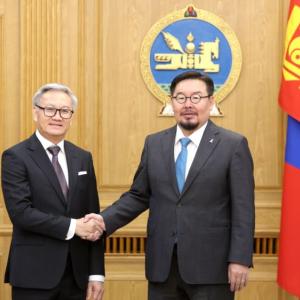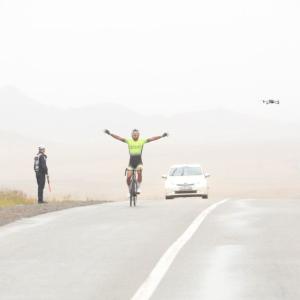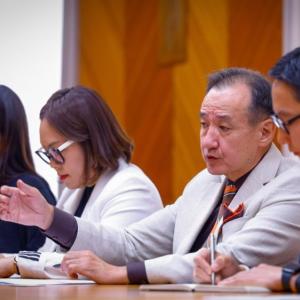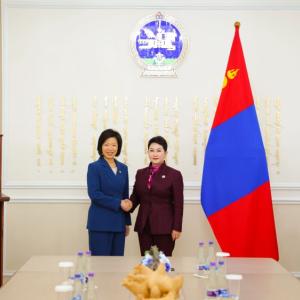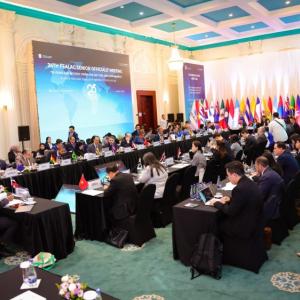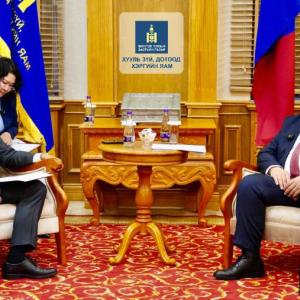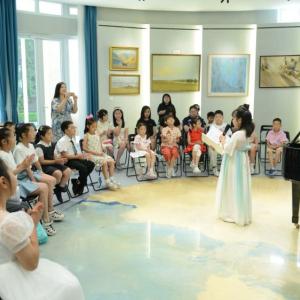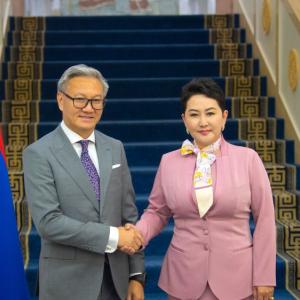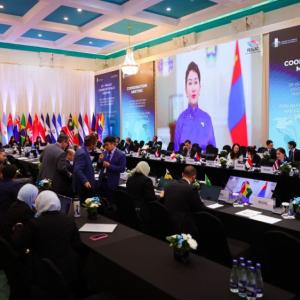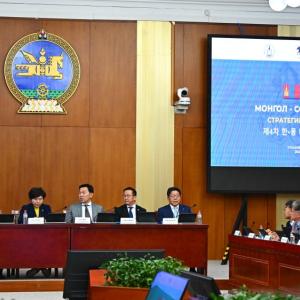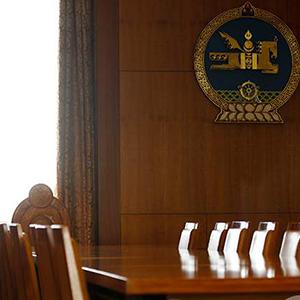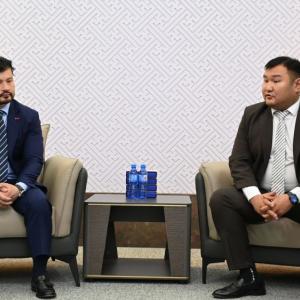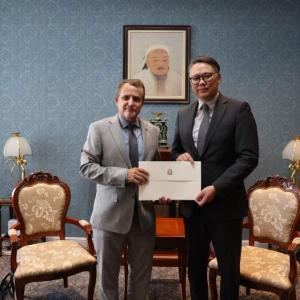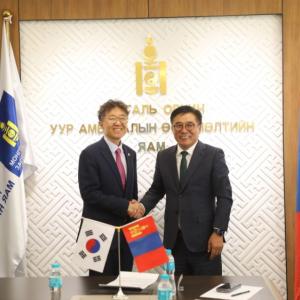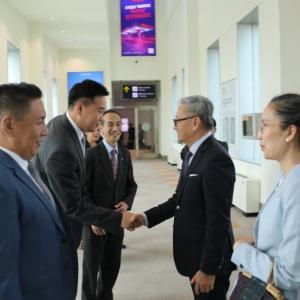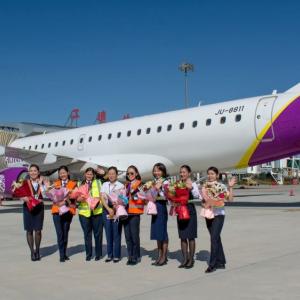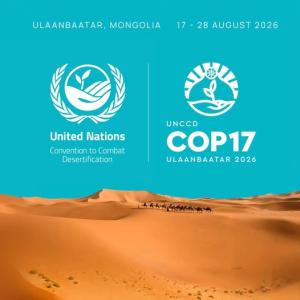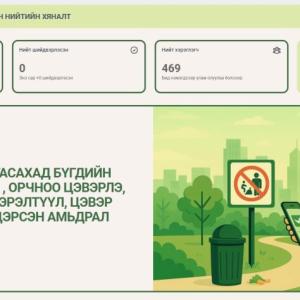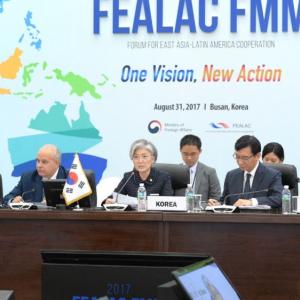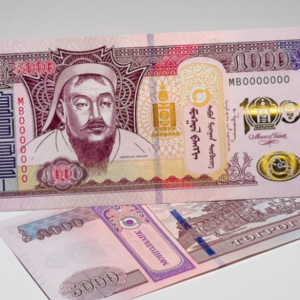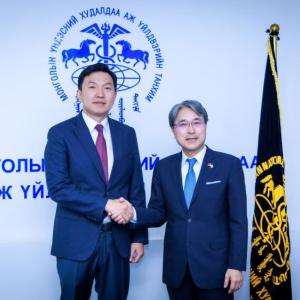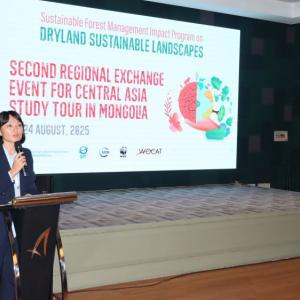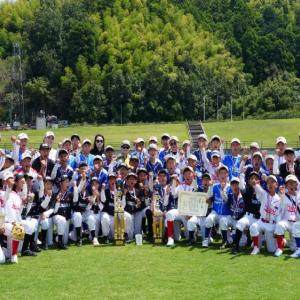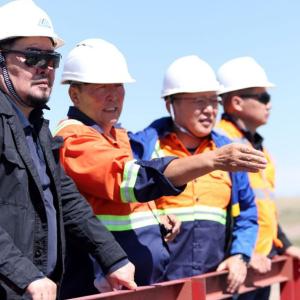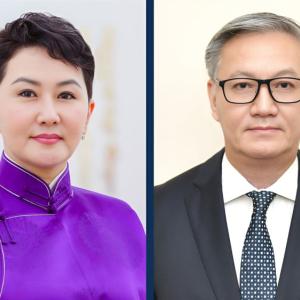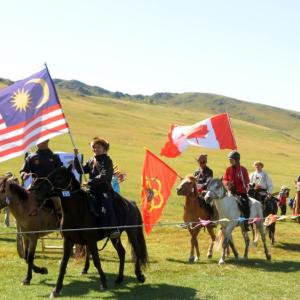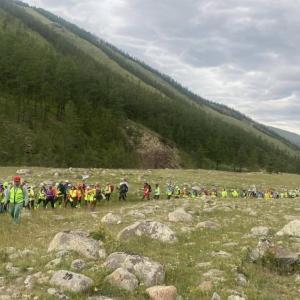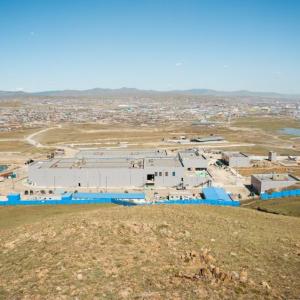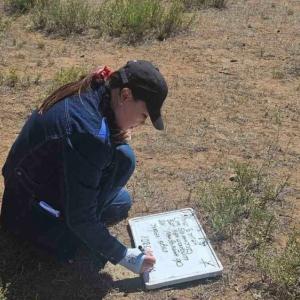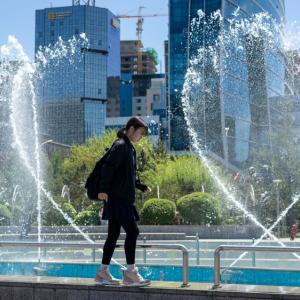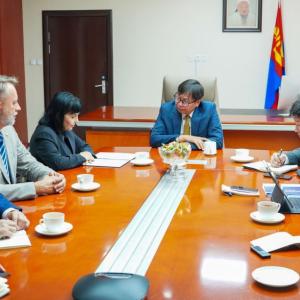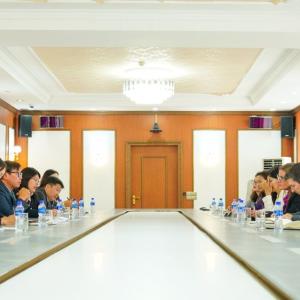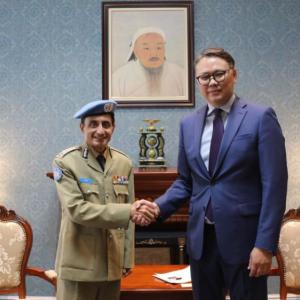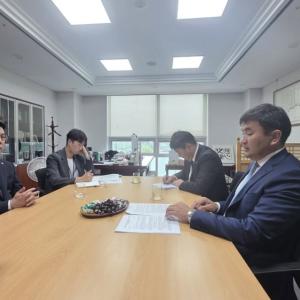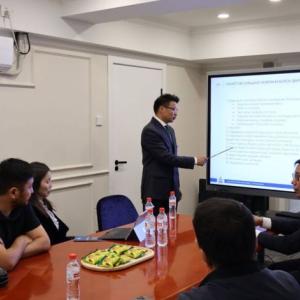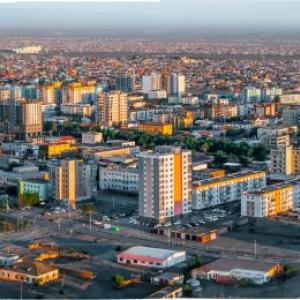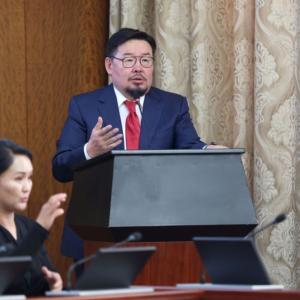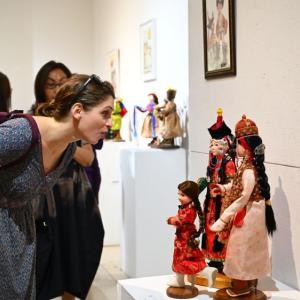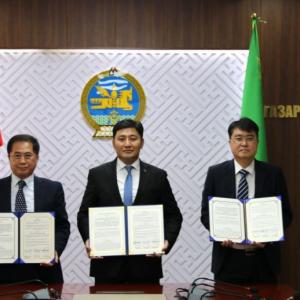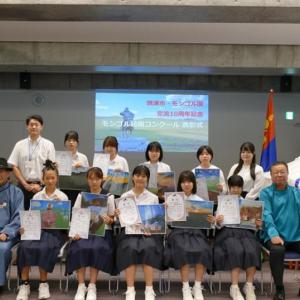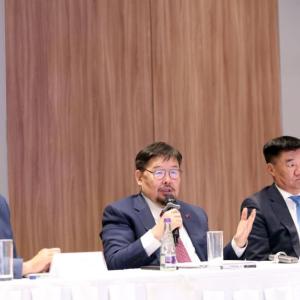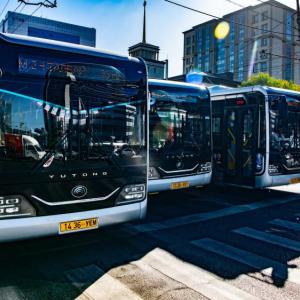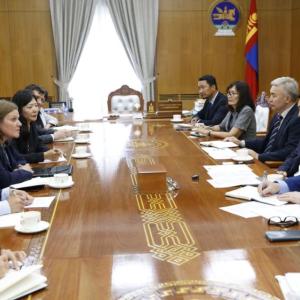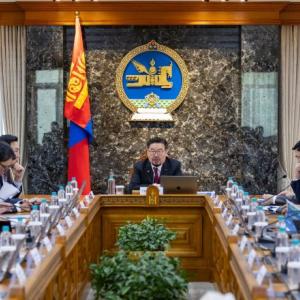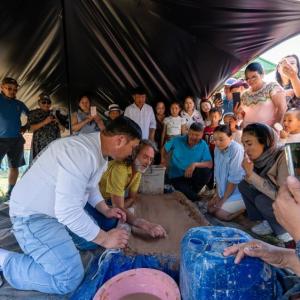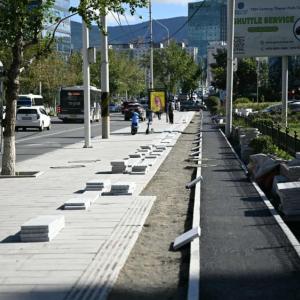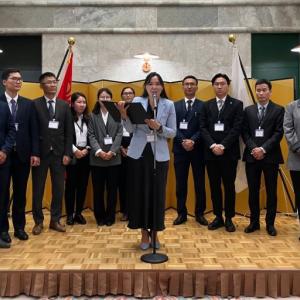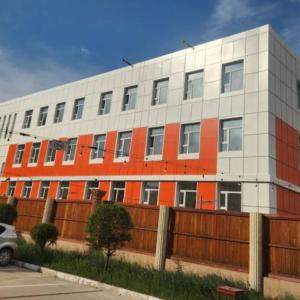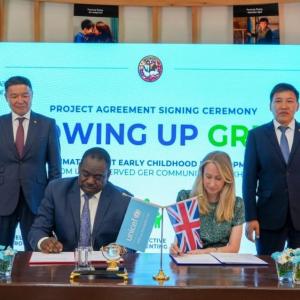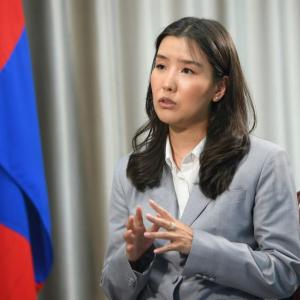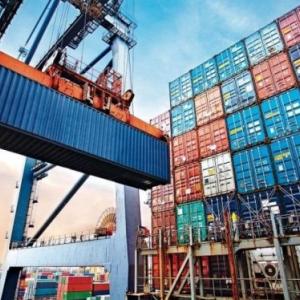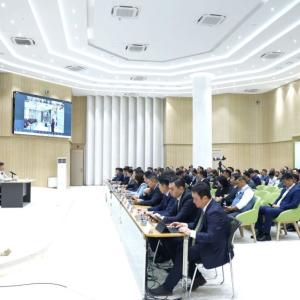German environmentalist Christian Escher: I believe that all fundamental change starts with cultural change
Society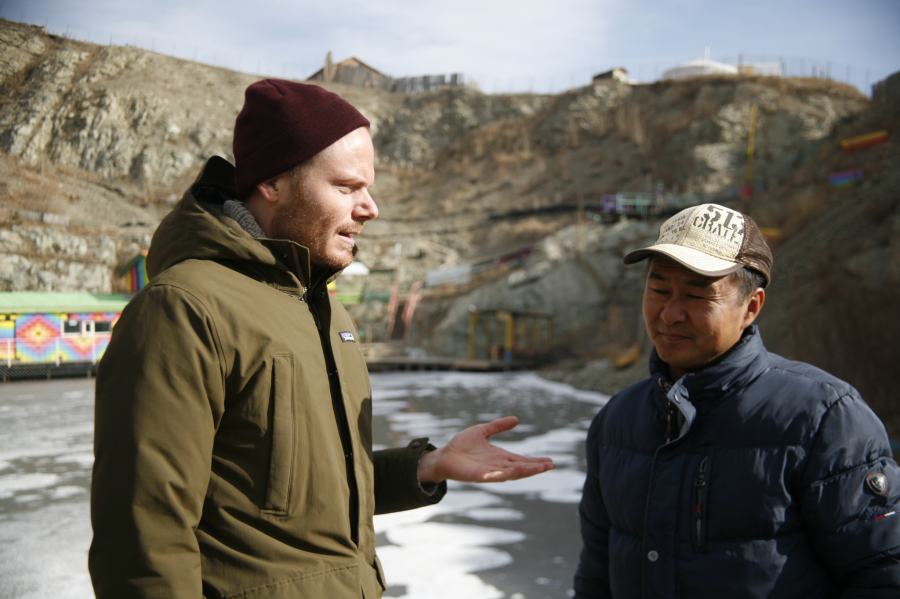
Ulaanbaatar /MONTSAME/. Funded by the European Union National Institutes for Culture (EUNIC) Nogoonbaatar International Eco Art Festival has launched its activities in March of 2021, involving Mongolian, French, Czech and German artists. Here we would like to introduce you an art critique Batzorig Mart’s interview with Christian Escher, the participant of the Festival.
Christian Escher specialized in environmental education and in communication & storytelling. He co-founded Munich-based "rehab republic" (www.rehab-republic.de), an NGO that develops unconventional environmental education methods, and the creative agency "Sichtbarmacher" (www.sichtbarmacher.de) which helps NGOs and businesses with an ecological or social purpose to improve their marketing and communications. Christian holds a Master’s degree in Biology and before turning independent worked as a science journalist, producing science magazines for French-German television channel arte.
How did you respond to the invitation to cooperate
with the Nogoonbaatar Eco Art Festival, and what attracted you to this event?
When Michael Heinst from Goethe Institut asked me on behalf of the organisers if I wanted to participate in a project that tackles air pollution in Ulaanbaatar through the arts, I was up for it right away. I was thrilled to get to know Mongolia and its people that I had heard so much about and it was an honour to be asked for support.
What are your
thoughts on global access to the environmental education?
I think it should be a right of every society and every citizen of the world to receive environmental education as part of the formal education system. Because there is nothing as fundamental to our lives as the plants, the ecosystems and the soil that support our existence. In Germany, environmental education to a large part relies on NGOs and private initiatives, because the formal education system puts its emphasis on maths and sciences. Of course the natural sciences are a part of environmental education, but they tend to theorize and reduce. We need to see, feel, smell and taste the connection of our daily lives to nature and internalize that our lifestyle choices matter.
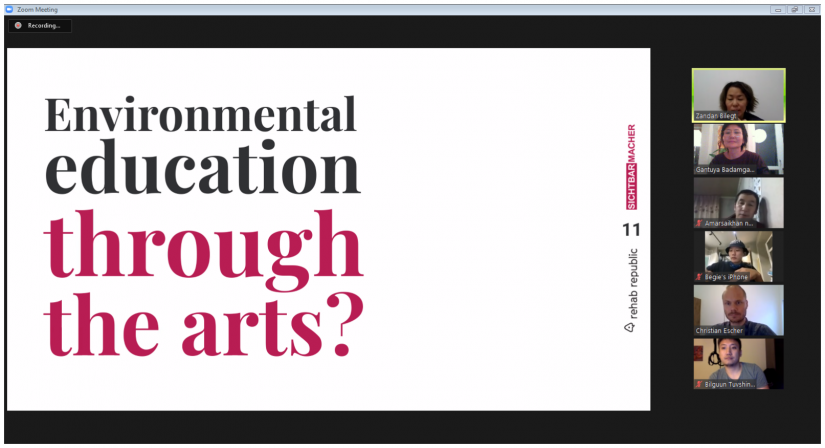
How important
is advocacy and its role in increasing public access to education in this area?
The most important issues that
humanity has to solve in the next years are climate change and the loss of
biodiversity. Especially we need to stop the decline of insect species.
Unfortunately, technology won’t save us. It can help, but what we ultimately
need is different lifestyles, with less consumption of resources and energy.
That means cultural change. In fact, I believe that all
fundamental change starts with cultural change, because only when enough people
demand it, politics can follow and implement the large scale changes that we
need. And to change culture, education and communication are key.
In your
experience, what is the most effective advocacy work in the area of
environmental education?
Sometimes, environmental education focuses too much on the transmission of information and on telling people what is “the right thing to do”. The problem here is that information and knowledge are not the main drivers of our behaviour. Instead, our behaviour is motivated by a mix of different factors, above all: emotions, attitudes, habits, social norms and beliefs. In fact, when we act in a way that is harmful to the environment, often we actually know about it. But we have other short term needs or desires that make us ignore the long term consequences. The primary goal of environmental education therefore is not delivering factual information, but working on feelings, attitudes or social norms – and offering attractive alternatives for new habits.
In your opinion, what is the most
successful and sustainable international project in this field?
There is a project in the Balkan Countries (Bosnia, Albania, Macedonia) called “Save The Blue Heart of Europe”. It was started by local people that wanted to protect their rivers from huge hydroelectrical dams. Hydropower is one of the many examples for the dilemma of technology in solving environmental issues. It is climate friendly, because it does not emit any carbon dioxide. But the dams are harming rivers and the ecosystems around them, thereby destabilizing forests and animal populations. Therefore, hydropower is no long term solution and definitely cannot be scaled for huge energy demands. The project brings together people of all ages, coming from the different countries that the rivers are flowing through. And they all understood that the economic development that comes with hydro power will mess with their natural environment.
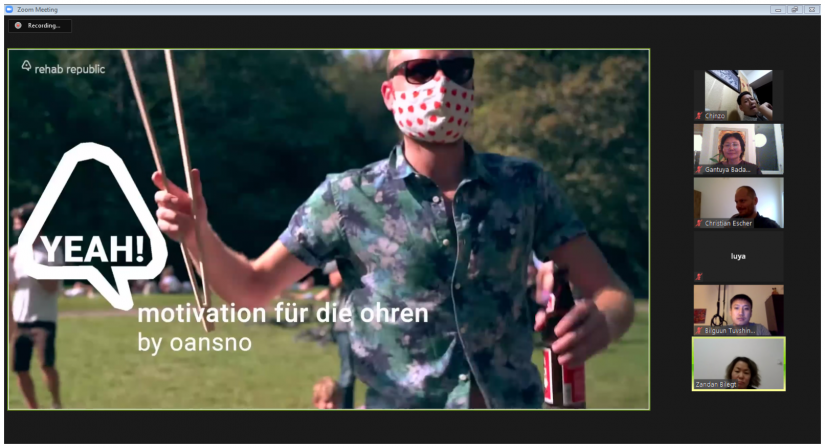
Which countries, do you think, are the best examples of successful implementation of environmental education? Why?
The
conditions in the different parts of the world are so diverse that I can’t
really compare countries to one another. Here in Europe, the Scandinavian
countries Sweden, Norway and Finland are doing a good job in environmental
education, as they generally do in education. It is no coincidence that the
climate change movement Friday’s for Future originated in Sweden.
Is the economic development of the
countries related to environmental education? What do you think about this?
I do think that in more developed countries there is more environmental education, simply because there are more resources to dedicate to environmental matters. But regardless of that, more developed countries have a greater negative impact on the environment. This is a crucial point: Economic development usually means more environmental impact, at least in the way that economic development works at the moment. It simply means more consumption and with that more use of plastic, more emission of greenhouse gases, more intensive agriculture and loss of biodiversity. That is why we need new ideas of how we define wealth and a good life. People in the most developed nations have to start changing their lifestyle first, because they are responsible for most consumption of energy and resources. And the less developed countries have to walk a different route of development – one that is based on a different concept of a good life. I am aware that it is unfair to ask less developed countries to go a different route of development. The point is, this development is a trap!
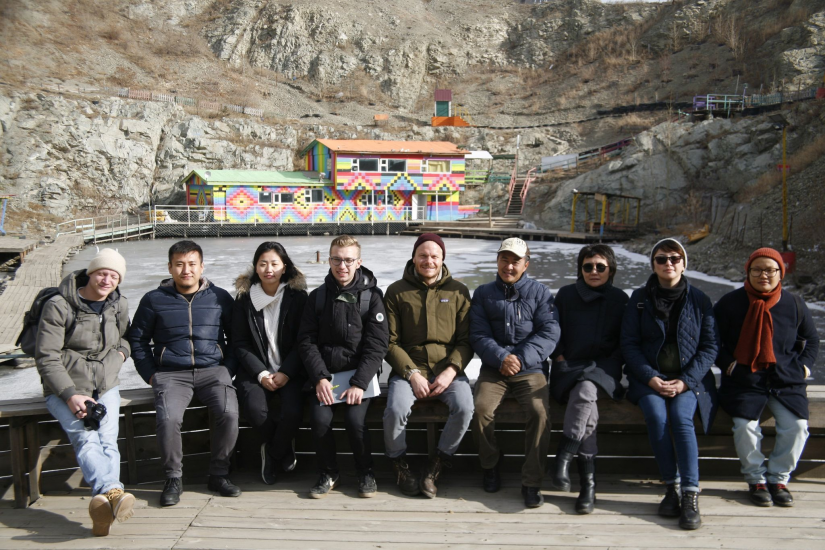
How do you see the future of this
type of activity?
We
have to continue to make up our minds about our role in the complex systems we
live in. Only if we open our horizons and start experimenting with new
definitions of wealth and development can we find a way of life that doesn’t
destroy its very fundaments.
How
did the pandemic affect your work and daily life?
We have mostly been working from home last year
and this year. There are no public events allowed, which makes all education
work very difficult, because it is a requirement for effective education, that
people are present.
Due to
the pandemic, foreign artists were unable to participate in the Nogoonbaatar
Eco Art Festival. How do you feel about participating in art events in this
way? What are the advantages and disadvantages?
I really miss making personal and cultural connections. Meeting people on screen is not the same as meeting them in person, and also appreciating the artwork is not the same. Anyway, it is inevitable for now until we find ways to deal with the virus. There is one advantage though, and that is less air traffic, which is one driver of climate change. In the future, when we have better measures against the virus, I hope that we can make use of the digital routines we have learned in the pandemic and travel less. And when we have to travel, we can offset our carbon emission, for example by donating to organisations that conserve rainforest or that plant trees.
The Nogoonbaatar
Eco Art Festival is funded by the European Union National Institutes for Culture
(EUNIC) and organized by
the EU Delegation to Mongolia, the Embassy of the Czech Republic, the Alliance Française d'Oulan Bator, the Goethe-Institut Mongolia, the
Arts Council of Mongolia and the Academy of Fine Arts of Mongolia. The festival is curated by Red
Corner, initiated by 976 Art Gallery.

 Ulaanbaatar
Ulaanbaatar

